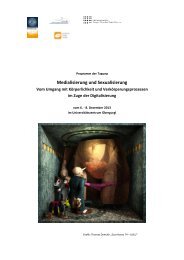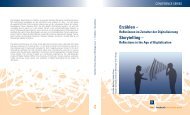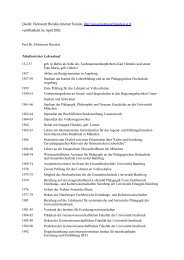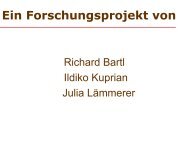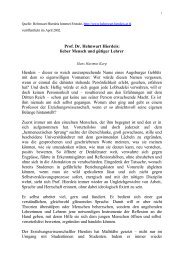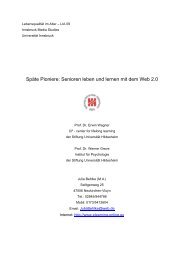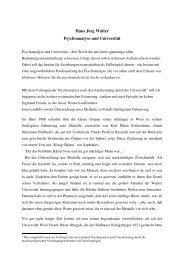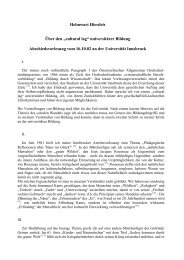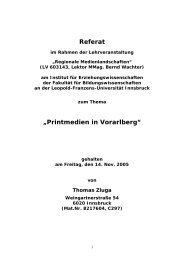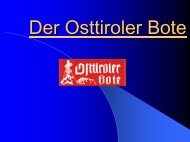Download pdf - Universität Innsbruck
Download pdf - Universität Innsbruck
Download pdf - Universität Innsbruck
Sie wollen auch ein ePaper? Erhöhen Sie die Reichweite Ihrer Titel.
YUMPU macht aus Druck-PDFs automatisch weboptimierte ePaper, die Google liebt.
‘Let the Source be with you! 121<br />
Findings<br />
Online systems of sharing are pervasive. Yet, F/OSS systems offer exceptionally rich examples<br />
of sharing all kinds, and huge amounts of economic, social and cultural resources<br />
on a global basis, thus, offering insights into several sharing practices and their interrelatedness.<br />
Empirical investigation into the F/OSS network exhibits five central practices of<br />
sharing: materializing intellectual capital (sharing code/economic capital), creating intellectual<br />
capital (knowledge sharing), seeding of culture (sharing social capital), relating<br />
and bonding (sharing symbolic capital), and signifying (sharing cultural capital).<br />
With free sharing of ideas among consumers, free access to information and free access to<br />
software code, the F/OSS community accumulates a very powerful cultural resource, that<br />
of a 'global brain'. Contributors are working together because the outcomes of their collective<br />
effort exceed an individual's abilities by far, whereas their own contributions, in concert<br />
with others, lead to amazing results. In online relationships, quality and excellence of<br />
solutions are not contingent upon the possession of resources but instead upon the capability<br />
and ability to combine and deliver resources in a way that meets the needs and expectations<br />
of others. Knowledge resources that are hoarded for the purpose of exerting<br />
power are therefore useless. Instead, knowledge sharing is facilitated through Web-based<br />
technology, and individuals can benefit greatly from these resources. Openly visible commented<br />
source code may actually be interpreted as a materialization of individual minds in<br />
a compressed and structured form, and provides the basis for practices of sharing invaluable<br />
economic and intellectual resources.<br />
Whereas the enormous code base of F/OSS projects materializes the intellectual capital of<br />
the Commons, which multiplies the more people can openly see, download, and work with<br />
it; discussion lists exhibit the interactive process of knowledge creation through mental<br />
experimentation (Hemetsberger, 2006). In practices of creating knowledge, developers<br />
openly and publicly ‘experiment’ with ideas and possibilities to implement new software<br />
functionalities, as demonstrated in the discourse among three developers below.<br />
On Sunday 30 March 2003 22:15, xxx1 wrote:<br />
> On Mon, 31 Mar 2003 01:44, xxx2 wrote:<br />
> > On Sunday 30 March 2003 11:47, xxx1 wrote:<br />
> > > The “Source File” is a confusing concept. Source of what?<br />
> > True that, but what could be used instead? “New file” ? - Naw, it could<br />
be older!<br />
> > “File that is going to replace the existing file” ? - Kinda long, isn't it?<br />
> > “File about to be copied” ? - Same as above, too long.<br />
IMO if there is something hard to describe with words, then visualize it :)<br />
[snip]



